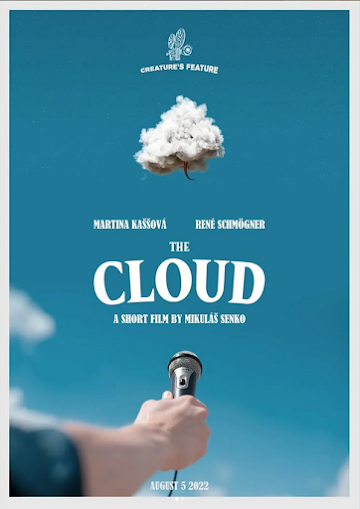La Cabra (2024) 💀💀💀
La Cabra (The Goat) isn't quite a horror short, so much as it is an avant garde short film with sinister undertones. It is difficult to pigeonhole La Cabra into any specific genre – easier to say instead that it is a film that horror enthusiasts will enjoy than to refer to it being a "horror" film. Some early reviews sought to place it in the genre of giallo. Although its lack of violence and death separate it from the gialli, the comparison isn't wholly unwarranted. Toruga's visual style clearly shows inspiration from the works of filmmakers such as Mario Bava and Dario Argento, particularly in the dreamlike atmosphere reminiscent of Bava's Lisa and the Devil. However, where Argento employs bold, saturated colors, Toruga opts for a more subdued palette that enhances the film's otherworldly melancholy.
While Toruga's visual style shows clear inspiration from filmmakers like Mario Bava and Dario Argento, the heavy use of filters and grading to artificially "age" the film feels unnecessary. The film successfully evokes the early to mid-1970s through its natural cinematography and composition alone. This artificial aging feels superfluous, distracting from the film's organic atmosphere.
The film opens with haunting music from Alicia Fricker's Antrum: The Deadliest Film Ever Made soundtrack. Used with the permission of co-director David Amito, Fricker's music has just a hint of discordancy running within it, serving to heighten tension in the listener. Here it is used to great effect, allowed to stand on its own as the film opens. Coupled with Toruga's visual style, it evokes a dreamlike world into which we are allowed only this short glimpse.
Internet horror cosplayer Coral Degraves, better known as "Kid Dreadful", embodies young Laura with a nuanced performance that carries the film's weight. We first encounter her engaged in solitary activities - tossing stones into a stream and working in an activity book - that typify childhood independence. Yet these seemingly innocent moments are tinged with melancholy; she's not skipping stones (a skill often learned from parents or peers) but merely tossing them, suggesting a lack of taught childhood experiences. Her solitude appears both chosen and circumstantial, her muted yellow sundress blending with rather than standing against the subdued forest setting, suggesting she's already part of this otherworldly realm.
This isolation transforms gradually from physical to spiritual, marked by a progression of symbolic encounters. The discovery of the mixed Christian and Satanic shrine, centered around a warning sign reminiscent of those found in Aokigahara, serves as a pivotal moment. The sign's message - "Life is a gift. Do not suffer. Please remember you are not alone" - takes on a sinister double meaning. While ostensibly meant to prevent tragedy, it also serves as an invitation to a different kind of companionship, one that Laura increasingly embraces through her collection of dark totems: the knitted goat, the Baphomet figure, and finally the finger puppets that create a miniature dark congregation of her own.
It is here where La Cabra has its strongest moments, as we're forced to confront an unsettling possibility - is Laura merely dreaming, or are we witnessing the final moments of a young life? The skeletal figure she passes, unnoticed, suggests the latter, while her willing acceptance of Baphomet's embrace implies a choice made in full awareness, if not understanding. This question of Laura's mortality haunts us until we arrive at a supremely designed Baphomet, reminiscent of classic representations shown throughout. Some subtle, and rather not so subtle imagery, adds additional depth to the film, especially upon second viewing. Slowing down the last moments, post credits, allows one to observe a handful of flashed still images, which further shade the question of Laura's mortal state.
La Cabra succeeds as an atmospheric mood piece, crafting a dreamlike experience through its visual style and symbolic imagery. While horror fans seeking traditional scares may find it too subdued, the film achieves its modest goals - creating an unsettling meditation on isolation and belonging. Toruga's direction, combined with Fricker's discordant score and Degraves' capable performance, delivers a short that lingers in the mind more for its questions than its answers. It's the kind of film that benefits from repeated viewings to catch its subtle symbolism, even if it doesn't quite reach the heights that its artistic aspirations suggest.
2024 ✶ 15m ✶ Color ✶ US ✶ Directors: Toruga ✶ Screenplay: Toruga ✶ Music: Alicia Fricker ✶ Starring: Coral DeGraves (Laura), Toruga (Baphomet) ✶ Youtube.











Comments
Post a Comment